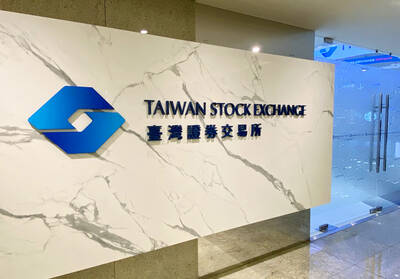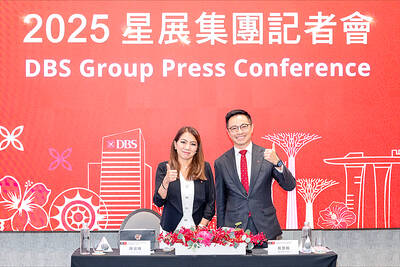Ground down by the sapping realities of modern city life, China’s young people are “lying flat,” the latest buzzword for those tapping out of a culture of endless work with little reward.
With growing inequality and rising costs of living nudging traditional markers of success out of reach, some young people are choosing to do the bare minimum at work, dialing back the go-getting aspirations their parents once harbored.
“Tang ping (躺平)” — or “lying flat” — has emerged as the latest Internet-crafted principle to navigate the pains of finding a job among thousands of applicants, plodding through long days and then having to pay exorbitant rents in China’s oversubscribed cities.

Photo: AFP
After a four-month trawl for work, Wang, 24, said that “lying flat” chimed with him when he realized his college classmate had been given a leg-up into his family business.
“Sending resumes was like fishing for a needle in the ocean,” Wang, a lab technician, said giving only one name. “You’re beaten up by society and just want a more relaxed life ... ‘lying flat’ is not waiting to die. I still work, but just don’t overstretch.”
Percolating through social media and harvested from all areas of culture, China’s young people find near-weekly expression in new terms, memes and anti-heroes.
“Lying flat” appears to have emerged from a now-deleted post on Chinese forum Baidu Tieba after an anonymous poster wrote “lying flat is my wise men’s movement.”
A debate on the meaning has attracted hundreds of millions of hits on Weibo, while the term has provoked admonishments from academics and state media.
For 24-year-old human resources worker Lin (林), “lying flat” has caught the mood as “young people can’t become ‘winners in life’ who buy cars, apartments, get married and have children.”
“So they choose to lower their goals and reduce their desires,” she said, giving only a surname.
Others praise the concept of reclaiming more attainable goals while stopping to smell the roses.
“Isn’t it wonderful if basic needs are met and people live in a more relaxed way?” 47-year-old freelancer Lucy Lu said.
‘SANG CULTURE’
Last year’s buzzword for the burgeoning ranks of dispossessed was “involution” — a tag describing a student at Tsinghua University who was videoed riding a bicycle while using his laptop. It is now part of the daily vernacular covering the treadmill of modern life, especially in hyper-competitive cities.
The average recruitment salary for fresh graduates is about US$1,000 a month, but rent in Beijing can easily exceed half that amount.
The mood of disenchantment is covered by an umbrella term — “Sang culture” — which began as a self-deprecating subculture for post-1990s young people expressing a sense of defeatism.
It is has entered the mainstream with millennials increasingly aware of a “glass ceiling obstructing their upward mobility,” said K. Cohen Tan (陳志偉), an associate professor of digital media and cultural studies at the University of Nottingham Ningbo China.
An early Sang icon was Pepe the Frog, called “sad frog” in China, whose memes conveyed their disillusionment — unlike its adoption as an alt-right symbol in the US.
By April, a new Sang culture anti-hero emerged from a boy band reality show.
Russian Vladislav Ivanov, 27, joined the show by accident and made it to the finals despite pleading with fans to vote him off.
Unable to leave without breaching his contract, he performed limply in contrast to the fame-getting format, telling fans: “Don’t love me, you’ll get no results.”
However, his on-screen persona captured the widespread feeling of wage-slavedom — and brought fame and endorsements.
Tan believes the malaise sweeping across the urban youth ultimately ties back to an age-old search for value in life.
“The difference lies in whether one feels they are grist to the corporate mill by creating value for others,” he said.
ROLL UP YOUR SLEEVES
“Lying flat” seemingly runs counter to the dynamic society cajoled in the rhetoric of Chinese President Xi Jinping (習近平), whose mantra for society is to “roll up your sleeves and work hard.”
The connotations of defeatism or docility also clash with generational values in a country where older people have experienced extremes of poverty, hunger and violence, and have often clawed their way up the social ladder.
The “lying flat” concept is “an extremely irresponsible attitude that not only disappoints one’s parents but also hundreds and millions of taxpayers,” said Li Fengliang (李鋒亮), an associate professor at Tsinghua University’s Institute of Education.
He said that people can still achieve social mobility through competition.
A widely circulated clip shows TV host Bai Yansong (白岩松) asking if young people just wanted “very low property prices, to find work anyhow and to have no stress whatsoever.”
“Surely not?” he asked.
State-run Xinhua news agency took a swing at “tang ping” culture, publishing a video of a scientist’s 12-hour workday, accompanied by a now-removed hashtag “the 86-year-old scientist who rejects lying flat.”

Taiwan Semiconductor Manufacturing Co (TSMC, 台積電) secured a record 70.2 percent share of the global foundry business in the second quarter, up from 67.6 percent the previous quarter, and continued widening its lead over second-placed Samsung Electronics Co, TrendForce Corp (集邦科技) said on Monday. TSMC posted US$30.24 billion in sales in the April-to-June period, up 18.5 percent from the previous quarter, driven by major smartphone customers entering their ramp-up cycle and robust demand for artificial intelligence chips, laptops and PCs, which boosted wafer shipments and average selling prices, TrendForce said in a report. Samsung’s sales also grew in the second quarter, up

LIMITED IMPACT: Investor confidence was likely sustained by its relatively small exposure to the Chinese market, as only less advanced chips are made in Nanjing Taiwan Semiconductor Manufacturing Co (TSMC, 台積電) saw its stock price close steady yesterday in a sign that the loss of the validated end user (VEU) status for its Nanjing, China, fab should have a mild impact on the world’s biggest contract chipmaker financially and technologically. Media reports about the waiver loss sent TSMC down 1.29 percent during the early trading session yesterday, but the stock soon regained strength and ended at NT$1,160, unchanged from Tuesday. Investors’ confidence in TSMC was likely built on its relatively small exposure to the Chinese market, as Chinese customers contributed about 9 percent to TSMC’s revenue last

Taiwan and Japan will kick off a series of cross border listings of exchange-traded funds (ETFs) this month, a milestone for the internationalization of the local ETF market, the Taiwan Stock Exchange (TWSE) said Wednesday. In a statement, the TWSE said the cross border ETF listings between Taiwan and Japan are expected to boost the local capital market’s visibility internationally and serve as a key for Taiwan becoming an asset management hub in the region. An ETF, a pooled investment security that is traded like an individual stock, can be tracked from the price of a single stock to a large and

Despite global geopolitical uncertainties and macroeconomic volatility, DBS Bank Taiwan (星展台灣) yesterday reported that its first-half revenue rose 10 percent year-on-year to a record NT$16.5 billion (US$537.8 million), while net profit surged 65 percent to an unprecedented NT$4.4 billion. The nation’s largest foreign bank made the announcement on the second anniversary of its integration with Citibank Taiwan Ltd’s (花旗台灣) consumer banking business. “Taiwan is a key market for DBS. Over the years, we have consistently demonstrated our commitment to deepening our presence in Taiwan, not only via continued investment to support franchise growth, but also through a series of bolt-on acquisitions,” DBS